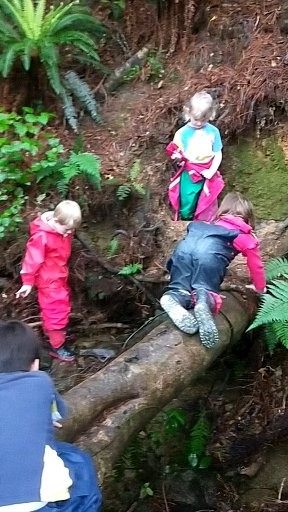 By Dannielle King–Playgroup Facilitator
By Dannielle King–Playgroup Facilitator
Observation is one of the core principles of Montessori practice. If the kaiārahi (guides) do not closely observe the tamariki (children), how will they know if they have mastered a skill in order to be ready for the next lesson, or know what their interests are to help them engage in interesting work?
For most of us observation sounds pretty simple–you just watch and see what is happening; there is no special skill required. Montessori teacher training however spends a large amount of time teaching and practising how to observe objectively. To really see what is happening for a child we must leave all our preconceptions, feelings and knowledge behind and concentrate on what is physically happening in the moment. Of course this is done unobtrusively so as not to interrupt their work.
“Praise, help, or even a look, may be enough to interrupt him, or destroy the activity. It seems a strange thing to say, but this can happen even if the child merely becomes aware of being watched. After all, we too sometimes feel unable to go on working if someone comes to see what we are doing. The great principle which brings success to the teacher is this: as soon as concentration has begun, act as if the child does not exist.” (Dr. Maria Montessori, ‘The Absorbent Mind’.)
Objective observation can be a useful tool as a parent too. Watch a new baby’s body language and facial expressions and you will be able to pick up on their preferences and emotions in different situations. If you can observe your toddler’s behaviour in relation to developmental stages, you can provide materials or tools to help master a new skill. Perhaps toys are constantly being thrown–on the surface this might look like misbehaviour and against the rules, but if you look at it as being driven to practise a new body movement, you could provide a cloth ball and a target or basket to aim at, and this stage might then work itself through with less disruption.
An older child’s actions may often differ from their words. Maybe your daughter says her favourite colour is pink, like all of her friends, but when offered a choice will always pick the green object? Are the small collectible toys (that you dislike so much but were talked into at the shop) actually being played with or are they abandoned once the excitement of purchasing and opening is over with?
I recently attended the Montessori conference and the 0-3 speaker led some really valuable discussions on observation, which I will share with playgroup whānau through the term. You can put it into practice yourself by simply paying more attention to what you are seeing at home, or if you want to be a bit more scientific, find a diary and make some notes. If you only write down physical actions and not your initial feelings as to what they mean, you may look back later and find a different interpretation of what was happening. Either way, any insight you gain can only help you on your parenting journey!

